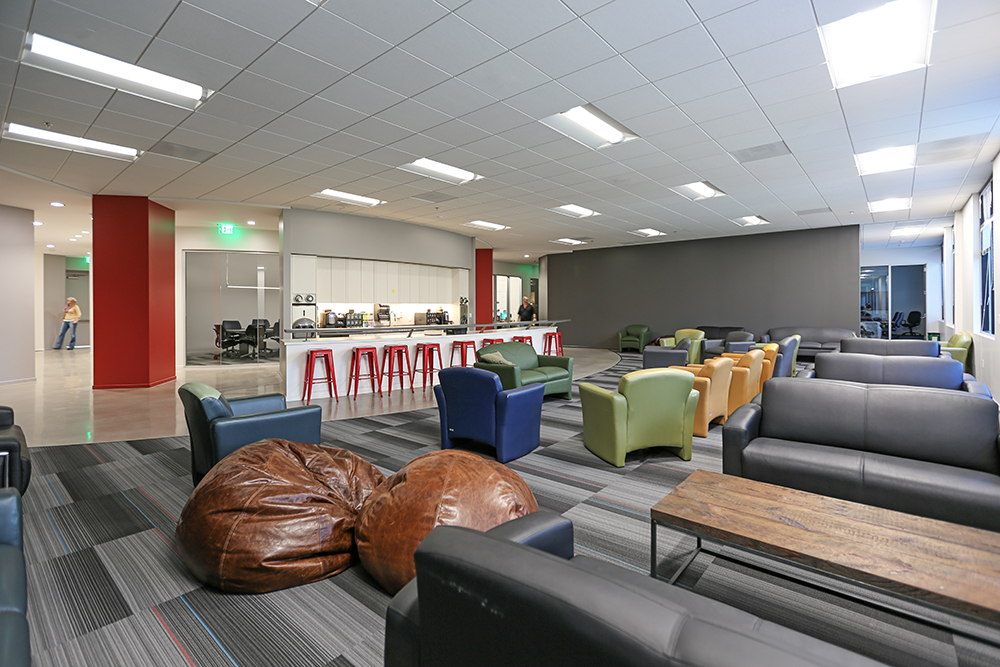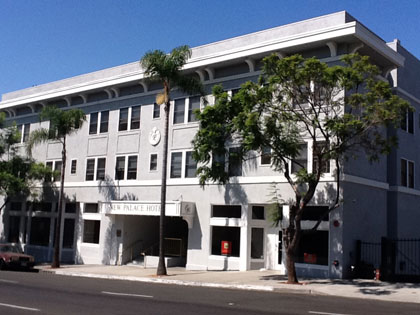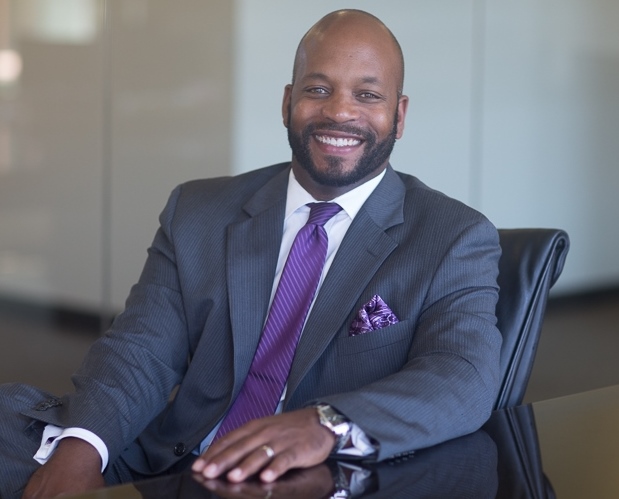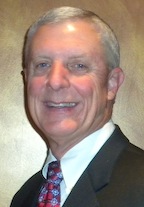Daily Business Report-Jan. 20, 2016
In the forecast for San Diego, the region excels in some sectors, such as high-value R&D technology businesses.
San Diego 2016 Economic Forecast:
Slowing to ‘Less Than Stellar’
San Diego’s economy is expected to slow down to a “less than stellar” 2016, according to an economic forecast to be delivered tonight by the National University System Institute for Policy Research.
Senior fellow and chief economist Kelly Cunningham foresees the regional economy seeing a slowing of annualized growth to just 1.9 percent, slightly slower than Cunningham’s estimate for 2015 of 2.1 percent.
This tepid growth translates into a forecast for 34,000 payroll jobs to be added in the region, while annual unemployment approaches full employment of 4.8 percent. This improvement in unemployment should be understood as a function of both increasing job opportunities, but also lower labor participation rates.
“Going forward San Diego is likely to continue to slightly trail all of California and essentially match the rest of the nation,” says Cunningham. “In our forecast for San Diego, the region excels in some sectors, such as high-value R&D technology businesses, but lags in other areas of real estate and business services. Military spending cutbacks have also slowed the region’s economic outlook.”
The forecast of San Diego’s economy is driven in part by the uncertainty of national global economies. Multiple indicators suggest the U.S. economy will not shake off the lethargy of the past six years, and indeed likely to further slow in 2016. Although the institute does not necessarily foresee negative growth or recession nationally (just yet), Americans will continue to experience sluggish economic conditions. In addition, at this point of six going on seven years of a post-recession timeline, economic cycles tend to slow, not accelerate.
A logical outgrowth of the tepid job market is wage growth has been extremely lean. Since the recession ended, average hourly earnings increased at the lowest rate since the 1960s as wages barely outpace “official” measures for low inflation. Although slowly improving, median household income in San Diego, after adjusting for inflation, will have still not recovered levels reached prior to the recession.
San Diego also continues to face two-tiered levels of job growth. The recession and recovery continued a decades-long squeeze on middle wage jobs in San Diego. In 2001 middle wage jobs accounted for 56.6 percent of all payroll jobs in the County. The proportion shrunk to 52.6 percent before the recession hit, and in the subsequent recovery the ratio still continued to fall to 49.5 percent as of 2014.
At the same time as demand for higher skilled and highly compensated positions continues to grow, lower wage jobs not easily replaced by machines or technology also increases. The result has been San Diego’s economy becomes ever more hour-glassed shaped as more jobs accumulate on the top and bottom, and fewer in the middle. This has significant implications for San Diego’s housing, income, education, and business needs beyond 2016.
Key sources of San Diego’s economic strength, principally derived from technology driven research and development as well as specialized manufacturing, should help the region perform slightly better than the rest of the nation. But given our continuing dependence upon tightening military and defense budgets, slowly improving tourism and local area consumption spending, and turmoil of real estate and financial markets, San Diego will be fortunate to achieve a seventh continuous year of positive economic momentum in 2016.
The National University System Institute for Policy Research forecast of San Diego’s 2016 economy will be presented today at National University’s School of Business and Management Speaker Series. The program begins at 5 p.m. in the Sanford Education Center at National University’s administrative offices, 11355 North Torrey Pines Road, La Jolla.
For the full forecast, click here
___________________________________________________

Pacific Building Group Completes Gaming
Destination for Daybreak Game Company
Daybreak Game Company, formerly Sony Online Entertainment, is celebrating its new Carmel Mountain Ranch office at 15051 Avenue of Science in San Diego, completed by general contractor Pacific Building Group. The firm relocated from an outdated office in the Miramar area.
The 60,000-square-foot space has been transformed from an out-of-date building to a modern hub for the developers of blockbuster hits and franchises, including DC Universe Online, and the EverQuest Next. The project cost approximately $4 million.
Pacific Building Group demolished then built out the gaming destination to include a lounge area with a garage-style roll-up door, booth seating and bar-height tables; large training and gaming spaces; a theater; and outdoor charging stations for cars. Also included are design elements like exposed wood and cement, and acoustic ceilings and high-quality carpet for improving overall comfort.
“From layout to lighting, this project goes against today’s trends in many ways,” says Jim Roherty, president of San Diego-based Pacific Building Group. “Daybreak opted for an environment with low lights, which makes it easier to look at a screen all day, and a floor plan that focuses on private offices, which help employees focus on the sound elements of the games they are designing. Most companies are currently redesigning their offices to feature natural light and open spaces.”
Pacific Building Group team members who completed the project include Jason Albrecht, Mark Irish, Kyle Felton and Lupe Gomez. Jeff Hines and Bre’an Fox of FS Design Group completed interior design elements.

LISC San Diego Invests $5.8 Million
Loan for New Palace Hotel
LISC San Diego has made a $5.8 million loan to Housing Development Partners, an affiliate of the San Diego Housing Commission, to finance the acquisition and closing costs of New Palace Hotel in Bankers Hill, which closed this week.
The 79 units will remain affordable for up to 55 years and will provide housing for low-income seniors aged 62 and older who are at risk for homelessness. There is also a manager’s unit on site.
“We take great pride in partnering with the San Diego Housing Commission to preserve this historic structure as an affordable housing complex,” said LISC executive director Edward Lopez. “These 80 units will provide safe, secure and comfortable housing for decades to come.”
The historic structure, located in Bankers Hill one block from Balboa Park at 1814 Fifth Ave., is a single-room occupancy senior complex with individual bathrooms. Future plans call for renovating all units into studio apartments with kitchenettes.
“The units at New Palace Hotel will remain affordable for 55 years, providing much-needed affordable housing for vulnerable seniors in San Diego,” said San Diego Housing Commission President/CEO Richard C. Gentry, who also chairs the HDP board of directors. “We are pleased to partner with Housing Development Partners and LISC San Diego for this important project.”
In addition, based on its partnership with Serving Seniors, a senior service care provider, HDP will provide medical support, daily living support, nutrition and transportation support, and other vital services. Serving Seniors currently operates a full-services senior center three blocks from the New Palace Hotel.
Originally built in 1913, New Palace Hotel was rebuilt in 1991, following a fire two years earlier that destroyed the building.

Community Activist Omar Passons
Gets Economic Development Post
Community activist and lawyer Omar Passons, a resident of North Park, has been appointed vice president of community development and policy for the Jacobs Center for Neighborhood Innovation.
Passons will lead the organization’s work in economic development, community ownership, and public-philanthropic partnerships to support the revitalization of Southeastern San Diego’s Diamond Neighborhoods. He will oversee policy to drive economic equity for residents and develop policy for Market Creek Plaza owner benefit.
Passons spent the previous decade practicing law, specializing in construction, land-use planning, real estate, and commercial litigation with an emphasis on public agency-related matters. Among his previous positions, he served as the deputy attorney for the California Department of Transportation and, most recently, as senior counsel at Stutz Artiano Shinoff & Holtz APC.
A Passons serves on the board of directors for the Earl B. Gilliam Bar Foundation, United Way of San Diego County, Voices for Children, CDC Small Business Finance, and the San Diego Workforce Partnership’s Workforce Development Board. He received a Juris Doctorate from George Mason University School of Law and a Masters of Public Health from the University of Arizona.
Personnel Announcements
Westcore Properties Hires Dave Armstrong

Westcore Properties hired long-time San Diego construction industry executive Dave Armstrong as director of construction. Armstrong will join the leadership team at Westcore and support the firm’s growing focus on acquiring and transforming properties.
Armstrong will oversee construction and building improvement activities for Westcore’s property investments throughout the Western states and beyond. He will also collaborate with Westcore’s acquisitions team to evaluate future development, existing buildings, infrastructure and systems.
Previously, Armstrong operated DB Armstrong Co. Inc., providing independent expertise to developers, financial fund managers and end-users. He also served as vice president at Reno Contracting and executive vice president at Roel Construction.
Armstrong has served as a board member for NAIOP San Diego and currently serves on its legislative affairs committee.
Kathy Mead and Richard Valdez Named
To Race Track Leasing Commission
Kathlyn Mead, 57, of Escondido, and Richard Valdez, 52, of Chula Vista, have been appointed to the Race Track Leasing Commission as representatives of the 22nd District Agricultural Association, San Diego County Fair Board of Directors. The appointments were made by Gov. Jerry Brown.
Mead was executive vice president and chief operations officer at the California Endowment from 2007 to 2014. She was president and chief executive officer at the Council of Community Clinics from 2006 to 2007, vice president at Blue Shield of California from 2005 to 2006 and president and chief executive officer at Sharp Health Plan from 1996 to 2005. Mead was vice president at Children’s Hospital San Diego from 1994 to 1996.
Valdez has been an adjunct professor at the University of San Diego School of Law since 2008 and a partner and associate at Sandler, Lasry, Laube, Byer and Valdez LLP since 2000. Valdez was a partner and associate at Procopio, Cory, Hargreaves and Savitch LLP from 1991 to 2000.
The positions not require Senate confirmation and there is no compensation. Mead and Valdez are Democrats.

USS Mobile Bay Departs San Diego
The Ticonderoga-class guided-missile cruiser USS Mobile Bay departs Naval Base San Diego for a scheduled deployment. Mobile Bay is part of the Great Green Fleet, an initiative optimizing energy use to increase optimal range, endurance and payload, turning energy into a force multiplier.
(U.S. Navy photo by Mass Communication Specialist 2nd Class Joe Bishop)




